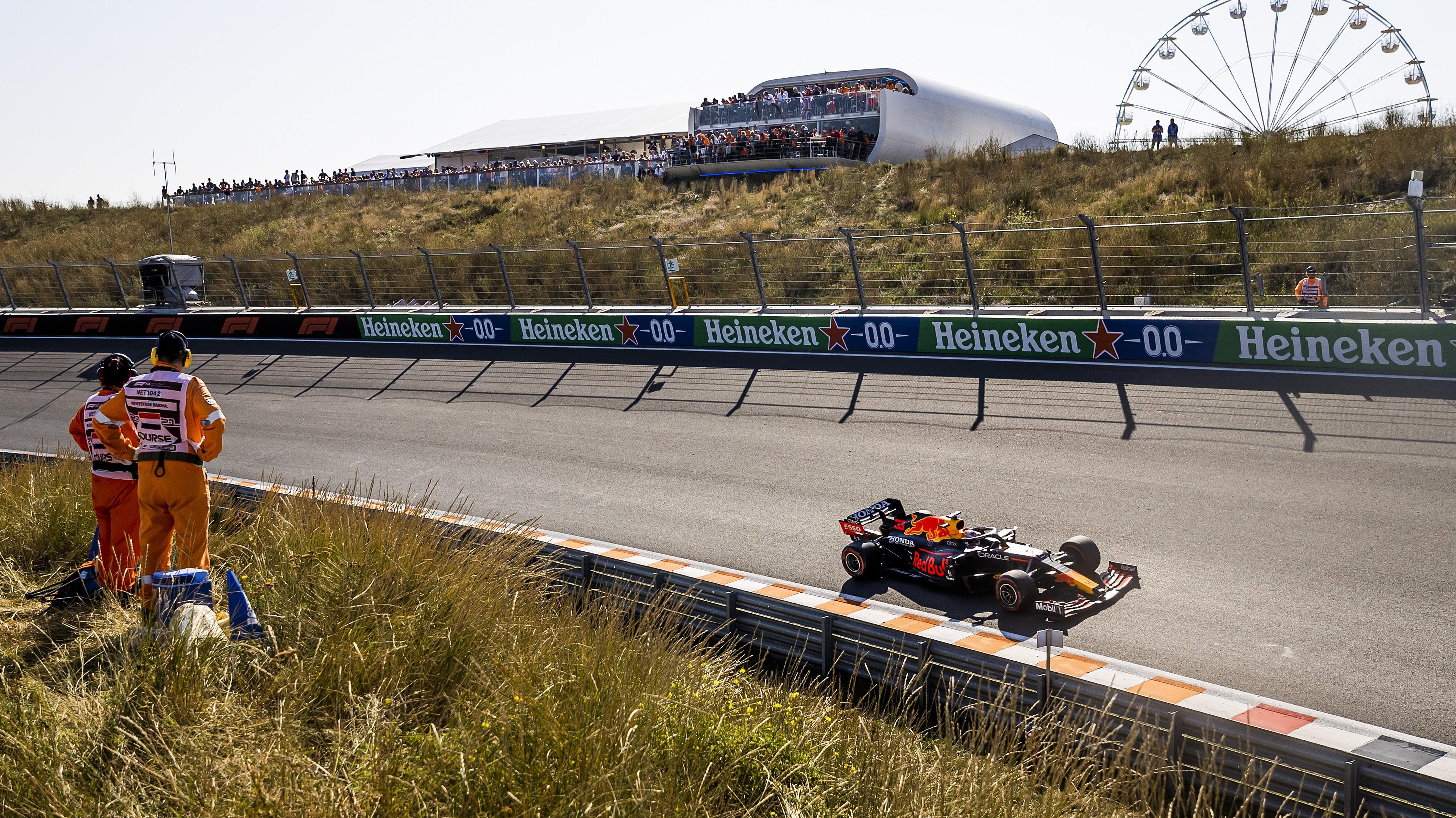F1 To Test DRS Through Dutch Grand Prix Banked Final Corner
Friday's FP1 session will allow DRS use through Luyendykbocht with the intention of doing so all weekend.
When the Dutch Grand Prix returned to the Formula 1 schedule last year after a 36-year absence, the 2.6-mile Circuit Zandvoort was appropriately renovated for modern F1 machinery. The most noticeable changes to the beachside circuit were made to the track's final corner, Luyendykbocht, named after Arie Luyendyk, the Dutch two-time Indianapolis 500 winner. Now F1 looks to make another change to turn 14 and include Drag Reduction System (DRS) through the corner.
For those unfamiliar with DRS, it's an overtaking aid that lifts a flap on the rear wing to increase acceleration and top speed by reducing drag. This also reduces the downforce produced by the rear wing, shifting the car's balance forward and making the car less stable.
In 2021, Formula One and the FIA originally intended the start-finish straight's DRS zone to begin before Luyendykbocht. The sweeping and relatively narrow circuit offers very few natural points for passing, and the idea was put forward to improve the chances of an overtake into the first corner. However, the idea never left the drawing board due to safety concerns. Last year's Dutch Grand Prix featured slightly more passing than expected, but showed that there was more to be done to improve racing and the final corner was an easy flat-out corner.
This year, all parties involved seem set on using DRS through Luyendykbocht. The FIA-supplied circuit map features the activation point for the start-finish DRS zone on the brief straight between turns 13 and 14. The FIA planned to test the combination during the weekend's first free practice session on Friday before making a final decision.
Nikolas Tombazis, FIA Single-Seater Technical Director, told Dutch F1 broadcaster Viaplay:
"The current position is that we are going to have the DRS ahead of the final corner, so early on, to improve a bit the racing in Zandvoort. But we are keeping an open mind on that, and we will be asking teams for their feedback. We've asked them already in simulations, but also after FP1 we will be asking teams for their feedback. And if we feel that there is any, even a remote, risk for the safety than clearly we would have to take action and change it after FP1."
Along with the banking, Steel And Foam Energy Reduction (SAFER) barriers and catch-fencing, similar to modern ovals in the United States, make Luyendykboch an oddity among Europe's major racing circuits. The circuit is fully prepared for heavy crashes in the final corner despite the F1 cars not being at their fastest while traveling through it. It will be exciting to see the drivers on the edge as they hurtle around Luyendykbocht.
